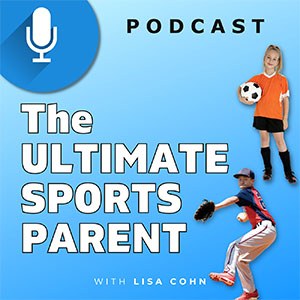Supporting Teammates in Youth Sports

When kids strike out at bat on Brad Jubin’s baseball team, the other players standing in the dugout raise four fingers to show their support.
This is a great way to lift young kids’ spirits after they make mistakes, says the co-founder of “A Team That Always Plays for Each Other.”
“The other kids are telling their friends, ‘Don’t worry, we’re here for you. There are no words; it’s just a simple gesture to say, ‘We’re here for you.’ As soon as that happens, the kids get a smile and everything changes. The player doesn’t sit and stew.”
Here at Kids’ Sports Psychology, we like this idea. It reminds us of a practice recommended by the Positive Coaches Alliance: When kids make a mistake, coaches and parents give them a “flushing” sign. The sign means, “Forget it, move on!”
On Jubin’s team, however, it’s the kids who give the sign. Jubin’s goal is to teach kids leadership through sports, which, to Jubin, means teaching them how to boost each other up.
Jubin arrived at this goal when he first started coaching baseball. At his first practice, he felt unworthy and self-conscious. He didn’t know much about baseball and had never played it. He decided he did have something to offer the kids, however: he could teach them how to support each other and be leaders.
“What started out as fun ideas to share with kids turned into a repeatable lesson: Kids should always play for each other.
They are there to help each other.”
For example, when kids are throwing the ball, he tells them, it’s not really about throwing. “It’s about making the catch easier for your friends.”
Of course, Jubin’s ideas are great ways to help kids build confidence and improve their experience in sports. What’s also nice about his ideas: They translate easily to life. We bet that his players have transferred many of these ideas to other areas of their lives.
At Kids’ Sports Psychology, exclusive members have exclusive access to our audio interview with Jubin. You can listen to it here:
Listen to the interview here! Members only
To listen to the first half of this interview, use the player below:
What’s more, parents and coaches can learn how to build kids’ confidence with our many other resources-including ebooks, audios, videos, articles-and more.
Related Articles on Kids’ Mental Game:
- Building Confidence With Supportive Communication
- Help Sports Kids Who Worry About Disappointing Teammates
- How To Support Your Athlete’s Coach
*Subscribe to The Sports Psychology Podcast on iTunes
*Subscribe to The Sports Psychology Podcast on Spotify
The Composed Sports Kid

“The Composed Sports Kid” audio and workbook digital download program for young athletes and their parents or coach helps kids cope with frustration and anger in sports. Help your sports kids learn how to manage expectations and let go of mistakes so they can keep their head in the game.
The Composed Sports Kid system is really two programs in one–one program to train parents and coaches how to help their kids practice composure, and one program that teaches young athletes–ages 6 to 13–how to improve composure, let go of mistakes quickly, have more self-acceptance, and thus enjoy sports more!
